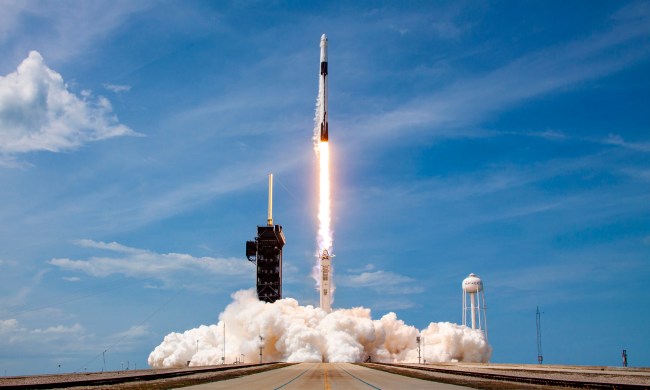
This week will see the world’s first privately funded lunar mission launching from Cape Canaveral, Florida. The Israeli nonprofit SpaceIL, together with the aviation and aerospace manufacturer Israel Aerospace Industries, will be launching Israel’s first mission to the moon, aboard SpaceX’s Falcon 9 rocket on Thursday, February 21. Israel aims to join the United States, Russia, and China in successfully landing a craft on the surface of the moon.
The lunar lander is named Beresheet, Hebrew for “Genesis” or “in the beginning.” The unmanned craft aims to travel the two-month journey to the moon and land on the lunar surface for just two days, collecting data on the moon’s magnetic field as well as capturing images to be transmitted back to Earth.
To achieve this, the Beresheet payload will join two other payloads that are being taken onboard the Falcon 9 rocket. If the launch goes well, around 30 minutes after liftoff the craft will disengage from the rocket at 60,000 kilometers (approximately 37,000 miles) above the surface of the Earth. Two minutes after the separation, the craft should be able to communicate with its mission control, which is located in Yehud, Israel. From there, the craft will use its own power to carry it on its long journey to the moon.
The SpaceIL organization was formed in 2011 and was a finalist in Google’s now-defunct Lunar XPRIZE challenge to design and built an unmanned lunar spacecraft. Although none of the international teams were able to complete the challenge before the deadline and claim the $30 million prize, the Israeli team continued with its development project and is now ready to see the fruits of its labor.
This launch is significant not only because of its privately funded nature, but also because Israel is a notably smaller country than the other superpowers who have launched lunar missions in the past. The project will surely be an inspiration to countries like Pakistan and South Korea which have up-and-coming space programs of their own.
“From the tiny country of Israel and with minimal budget, we intend to accomplish what only three superpowers have done before,” SpaceX told The Verge. “We are pioneers.”
If you’re interested in watching this slice of space history unfold live, check out our post on where to watch the SpaceX launch.



